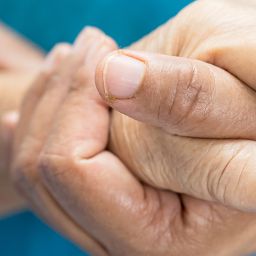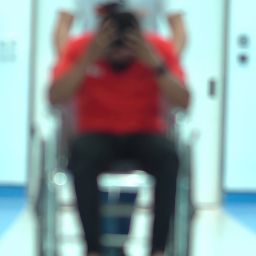Starting the rehab process is a life-changing experience, not only physically but also emotionally and mentally. While the primary goal of rehabilitation is to overcome addiction or recover from illness, it also offers a unique opportunity to improve your personality and transform your mindset. This journey allows you to reconnect with yourself, grow stronger, and become more self-aware. Whether you’re at one of the renowned rehab centers in Baltimore or elsewhere, rehabilitation provides the space to reshape your habits and cultivate a healthier lifestyle for long-term success.
Beyond physical recovery, rehab is a powerful catalyst for personal growth and behavioral health. It’s a chance to develop new skills, foster healthier attitudes, and enhance your overall well-being. The process helps individuals strengthen their mindset and build habits that support a fulfilling life after recovery. As you progress through rehabilitation, focusing on improving your personality can boost your confidence and equip you with the tools to thrive in your new chapter.
What is Rehabilitation And How it Impacts in Personality Development?
Rehabilitation is a structured process designed to help individuals recover from physical, mental, or emotional challenges, often after addiction or a medical condition. It focuses on restoring one’s well-being and helping them regain control over their lives. Rehab includes various therapeutic approaches like counseling, medical treatment, and personal development activities.
The rehab process doesn’t only focus on physical healing; it also targets emotional and mental recovery. During this journey, your personality can change significantly as you learn new coping mechanisms, reframe your mindset, and build a healthier sense of self.
Why Personality Development is Important in Rehab
Boosting Self-Esteem and Confidence
As you work on improving your personality during rehab, you’ll notice a boost in your self-esteem and confidence. Rehabilitation offers you the tools and space to reflect on yourself, correct negative behaviors, and nurture your strengths.
Improving Social Skills
Rehab often involves group therapies and social interactions that help you reconnect with others. Developing social skills during this time can improve how you relate to people, enhancing your communication, empathy, and understanding of others.
Building Emotional Resilience
Being strong and able to handle tough times is really important when you’re trying to get better or deal with problems in life. Developing your personality helps you handle stress better, control your emotions, and become more resilient in the face of challenges.
1. Develop Self-Awareness
Understanding Your Emotions
One of the first steps to improve your personality during the rehab process is learning to understand and manage your emotions. Rehabilitation is a time when emotions often run high, but instead of suppressing or avoiding them, learn to confront them head-on. Recognizing your emotional triggers can help you build healthier responses, leading to a more balanced and emotionally intelligent personality.
Recognizing Personal Strengths and Weaknesses
In rehab, you have a golden opportunity to reflect on your strengths and weaknesses. Many rehabilitation programs, especially in well-established rehab centers in Baltimore, offer counseling and therapy that guide you through self-assessment. Knowing your strengths allows you to harness them while recognizing your weaknesses gives you a chance to work on them.
2. Build Emotional Resilience
Handling Stress Constructively: During the rehab process, you’ll face various challenges, and developing emotional resilience is key to overcoming them. Instead of crumbling under pressure, learn to manage stress constructively. Techniques like mindfulness, meditation, and journaling can improve your personality by helping you stay calm and collected under stressful circumstances.
Overcoming Setbacks Gracefully
Setbacks are inevitable in rehabilitation, but how you handle them defines your character. Instead of thinking mistakes are bad things, think of them as chances to learn something new. Building the ability to bounce back quickly from disappointments will not only accelerate your rehab process but also make you a more adaptable and resilient person in all areas of life.
3. Enhance Communication Skills
Expressing Yourself Clearly
Being able to talk to people clearly and understand what they’re saying is important in everything we do. During rehab, you will have many opportunities to interact with counselors, peers, and family members. Improving how you express yourself helps reduce misunderstandings and fosters stronger relationships. This, in turn, helps improve your personality, making you more confident and articulate.
Listening Actively
Communication isn’t just about talking—listening is equally important. When you’re actively listening, you pay full attention to the person talking, try to understand what they’re saying, and think carefully about how you’ll reply. By honing your listening skills during the rehabilitation process, you’ll not only strengthen your interpersonal relationships but also develop empathy, a trait that enhances any personality.
4. Enhance Patience and Discipline
Embracing the Long-Term Nature of Recovery
Rehabilitation is not an overnight transformation; it requires time, patience, and consistency. Developing the discipline to follow through with your rehab program day after day, despite occasional frustrations, is crucial. This trait, once built, can be applied to other areas of life, helping you improve your personality and achieve future goals more effectively.
Practicing Patience with Yourself and Others
Recovery is not linear, and you may have moments when progress feels slow or non-existent. Cultivating patience with yourself during these times prevents feelings of frustration or self-blame. Additionally, showing patience towards others—whether it’s fellow rehab participants or family members—will help you grow into a more compassionate and understanding individual.
5. Set Personal Goals
Defining Short-Term Goals
Goal-setting is a powerful tool in the rehab process. Start by defining small, achievable goals for yourself. Whether it’s attending group therapy sessions regularly or sticking to your exercise routine, setting and achieving short-term goals boosts your confidence and sense of accomplishment. This, in turn, helps you improve your personality by fostering a goal-oriented mindset.
Focusing on Long-Term Aspirations
While short-term goals are essential, it’s equally important to keep your eye on the bigger picture. What kind of person do you want to be once you complete rehabilitation? By envisioning your long-term aspirations, whether it’s building a career, nurturing relationships, or maintaining sobriety, you can stay motivated throughout your recovery journey.
6. Practice Gratitude and Positivity
Adopting a Positive Outlook
The rehab process can feel overwhelming at times, but maintaining a positive outlook is key to staying motivated. Think about how much you’ve already done, instead of focusing on the hard things. Gratitude practices, such as keeping a daily journal of things you’re thankful for, can shift your mindset from one of scarcity to one of abundance, helping you improve your personality by becoming more optimistic and hopeful.
Showing Gratitude to Others
Expressing gratitude towards the people supporting you, whether they are rehab staff, family members, or friends, strengthens your relationships and builds a sense of community. Gratitude fosters kindness and humility, two traits that are highly valued in personal development.
7. Develop Healthy Habits
Focusing on Physical Health
Your physical well-being plays a crucial role in the rehab process. Exercise, balanced nutrition, and proper rest all contribute to your recovery, but they also help improve your personality by promoting discipline and self-care. Taking care of your body boosts your self-esteem and provides a solid foundation for emotional and mental growth.
Prioritizing Mental Health
Besides taking care of your body, it’s also important to look after your mental health. This can be done through regular therapy sessions, mindfulness practices, or simply taking time to relax and decompress. Prioritizing your mental health during rehabilitation will lead to better emotional regulation and improved relationships, both of which are key components of a well-rounded personality.
8. Surround Yourself with Positive Influences
Choosing Supportive Friends and Family
During rehab, it’s essential to surround yourself with people who uplift and support your journey. Supportive friends and family members play a vital role in your rehabilitation, providing encouragement and motivation. By consciously choosing positive influences, you can create an environment that helps you thrive and improve your personality.
Avoiding Toxic Relationships
Just as important as surrounding yourself with positive influences is distancing yourself from toxic relationships. Whether it’s friends who enable destructive habits or individuals who drain your energy, cutting ties with such people during the rehab process is a necessary step. Removing negativity from your life gives you the space to grow into the best version of yourself.
9. Learn From Others’ Experiences
Engaging in Group Therapy
Group therapy sessions are an integral part of the rehab process, especially in rehab centers in Baltimore and other areas with strong recovery programs. Listening to others’ stories, struggles, and successes can offer you valuable insights into your own journey. By learning from their experiences, you gain new perspectives and strengthen your empathy, both of which help improve your personality.
Sharing Your Own Story
While learning from others is essential, sharing your own story is equally important. Being open about your struggles and triumphs helps you process your emotions and creates a sense of connection with others in the group. This vulnerability can lead to personal growth and improved communication skills, further enhancing your personality.
10. Commit to Lifelong Learning and Growth
Continuing Education Post-Rehab
Rehabilitation is only the beginning of a lifelong journey of self-improvement. Whether it’s enrolling in educational programs, attending workshops, or exploring new hobbies, committing to lifelong learning keeps your mind sharp and your personality dynamic. The rehab process teaches you the value of growth, a lesson that should be carried forward beyond recovery.
Seeking Ongoing Therapy or Counseling
Recovery doesn’t end when you leave rehab. Regular therapy or counseling sessions can help you continue to grow emotionally and mentally, ensuring that you stay on the path of self-improvement. Ongoing personality development is a cornerstone of maintaining the progress you made during rehab and further improving your personality in the long term.
Seeking Professional Help?
If you or someone you know is struggling with addiction or seeking help for rehabilitation, don’t hesitate to reach out. Our team of experienced professionals is dedicated to providing compassionate and effective support. We offer a variety of programs and services tailored to individual needs, helping individuals achieve lasting recovery and improve their overall well-being. Contact us today to learn more about how we can help.
Conclusion
The rehab process is a transformative experience, offering you the chance to not only overcome addiction or illness but also to improve your personality in meaningful ways. Whether you are in rehab centers in Baltimore or undergoing rehabilitation elsewhere, focusing on self-awareness, emotional resilience, communication, and personal growth can have a lasting positive impact. By embracing these 10 strategies, you will emerge from the rehab process not only healthier but also more confident, compassionate, and self-assured. After you finish rehab, your journey to become a better person doesn’t stop. It’s just the start of a lifelong commitment to being the best you can be.
















